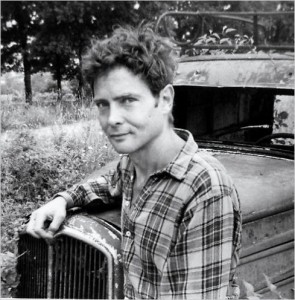W.S. Merwin: “If something can’t be said, what do you do? You scream.”
Tuesday, November 1st, 2011Hat tip to Maureen Mroczek Morris for sending this Q&A with W.S. Merwin, former U.S. poet laureate and Pulitzer prizewinner.
In this interview with Nick Owchar of the Los Angeles Times, the poet talks about his friendship with Nobel laureate Czeslaw Milosz. He talks about that subject at more length in An Invisible Rope: Portraits of Czeslaw Milosz, but here he talks about his relationship to technology, too:
Though Milosz is gone, can he still function as a mentor to other poets?
Oh, I think so, and I think every poet can do that. I still find myself reciting for pleasure, as I have ever since I was 18, [Yeats’] “Sailing to Byzantium” and hearing something in one of the lines that I didn’t hear before. You go on learning. What a great poem teaches you, and it’s not intellectual at all, is the resonance in the language that’s heard there. This goes back to the very origins of poetry and to the very origins of language. I think poetry is as old as language, and both come out of the same thing — an effort to try to express something that is inexpressible. If something can’t be said, what do you do? You scream. You make some terrible noise of pain or anguish or anger or something like that. You make a sound, an animal-like sound which, with time and society trying to calm you down, begins to take shape into something.
Is there still a place for this kind of primal expression in our wired-up culture?
I wonder, and I think one of the problems about so-called virtual reality — which is not even virtual and it’s certainly not reality either — is that homo faber [“man the creator”] is a creature who has made things that substitute for him doing them himself. These things may do them more conveniently, but they always atrophy his abilities to do them at all.
I’d guess that you probably don’t tweet.
No, and I don’t use email either.
Yes, but convenience seems to be the answer to why we do everything now. I can’t believe it. That reminds me of something Czeslaw once said not to me but to [Milosz’s wife] Carol. They were coming to stay with us on Maui, and our home isn’t easy to find. It’s a little remote, and you can’t see it from the road. Czeslaw told Carol, ‘Wherever we go to see William, I know one thing. It’s always going to be a little hard to get there, and there won’t be many other places around it.’ It’s true. All of the places I’ve ever loved in my life have been inconvenient, and that has been part of the beauty too, you know.
It’s the same with poetry. What about the student who asks, ‘Why do we need to memorize a poem when we can find it on the Internet?’ In other words, why should I have this experience when I can allow the computer to have it for me? That is one of the things that still makes me deeply suspicious.





